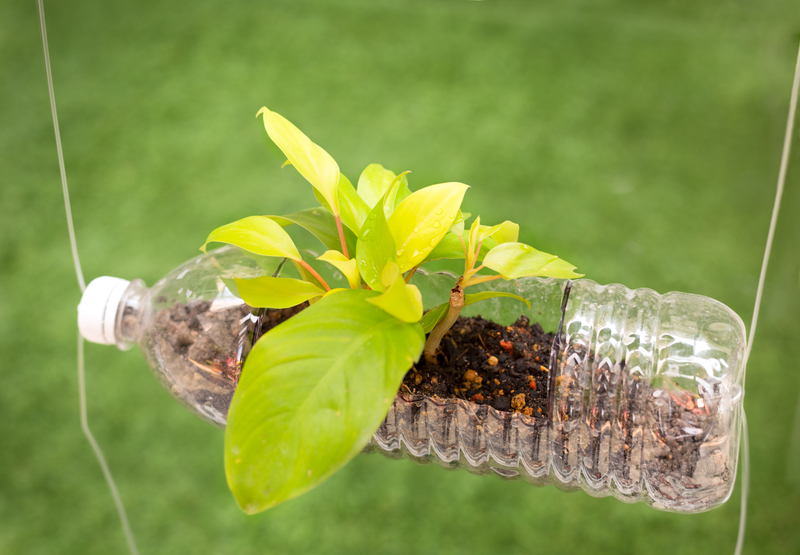Street-Savvy Tips to Save on Bulky Waste Item Collection
In today's fast-paced, consumer-driven world, managing bulky waste items has become a pressing issue for homeowners, renters, and businesses alike. Whether it's old furniture, broken appliances, or unwanted mattresses, disposing of large items efficiently without breaking the bank requires a bit of know-how. Fortunately, there are smart, street-savvy ways to save on bulky waste item collection. This comprehensive guide will walk you through practical strategies, tips, and tricks to manage big rubbish on a budget, while also caring for the environment.
Understanding Bulky Waste Item Collection
Before diving into the cost-saving tips, it's important to understand what constitutes bulky waste item collection. Bulky waste items are typically objects too large to be taken with regular household garbage, such as:
- Beds and mattresses
- Sofas and armchairs
- Wardrobes, tables, and other large furniture
- Large electronic appliances (fridges, washing machines, TVs)
- Carpets and rugs
- Garden waste and large branches
Most city councils or local authorities have dedicated services for large-item collection, but these can come with significant fees. Knowing your options and how to optimize them is key to saving money.

Smart Ways to Cut Costs on Collecting Bulky Waste Items
1. Utilize Local Authority Free Collection Days
A growing number of local authorities offer free bulky item collection days as part of their waste management initiatives. These events are typically scheduled a few times a year, allowing residents to dispose of a specified number of large items at no extra cost. To take advantage of these opportunities:
- Stay informed. Check your council's website for upcoming dates and guidelines.
- Plan ahead. Collect and store bulky items you need to dispose of until a free collection becomes available.
- Register early. Spots can fill up quickly, so sign up as soon as details are announced.
Making the most of free collection days can minimize your costs and ensure you're complying with local disposal rules.
2. Share the Cost with Neighbors
If you've missed a free collection day or your council charges for large item disposal, neighborly cooperation is a clever solution. Here's how it works:
- Contact people on your street or in your apartment building who might also need to dispose of bulky items.
- Hire a private waste collection service and split the cost among households.
- Pooling resources often makes professional junk removal much more affordable compared to booking a solo pick-up.
Shared collections also reduce the number of collection vehicles needed, which is better for the environment. It's a win-win!
3. List Items for Free or for Sale Online
One person's trash can indeed be another's treasure--especially when it comes to bulky waste items. Before arranging for disposal, try:
- Listing unwanted furniture, appliances, or other large items on popular marketplaces like Facebook Marketplace, Craigslist, Freecycle, or local community groups.
- Using phrases like "free removal", "needs gone", or "free to collector" to encourage quick pick-up.
- You might earn a few extra dollars--or at the very least, save yourself the cost and hassle of organized disposal.
*Pro tip:* Clean your items and take clear photos. Even items with minor damage may appeal to someone looking for a low-cost fix.
4. Donate to Charities and Nonprofits
If your large household goods are still in usable condition, donating to charity can be a practical and altruistic option. Many organizations offer free bulky item collection, especially for:
- Furniture
- White goods (fridges, washing machines, etc.)
- Homewares and electronics
Some of the most well-known charities for item collection include:
- Goodwill
- The Salvation Army
- Habitat for Humanity ReStores
- Local shelters and community centers
This approach not only saves you money but also supports important social causes and keeps items out of landfill.
5. Take Advantage of Drop-Off Facilities
Many municipalities operate waste drop-off centers or recycling facilities where residents can deliver their large rubbish for free or for a nominal fee. The benefits:
- Convenient for those with access to a vehicle.
- Often accepts a broader range of items than curbside collection.
- Allows flexible drop-off schedules, especially on weekends.
Tip: Check your local facility's accepted items list and any fees in advance.
6. Break Down Items Yourself
Disassembling furniture or other large objects before collection can help you save on bulky item disposal fees:
- Many waste services charge by item size or weight. Smaller pieces = lower costs.
- Pieces that fit your regular garbage or recycling bins may be collected for free as standard household waste.
- Take apart beds, remove sofa legs, and flatten cardboard.
Always wear gloves and use appropriate tools to stay safe while dismantling large items.
Frequently Overlooked Tips for Bulky Waste Management
7. Inquire About Manufacturer Take-Back Programs
Some retailers and manufacturers have take-back or recycling schemes for old appliances and furniture when you purchase a replacement from them. These programs often include:
- Free or discounted pick-up of your old item
- Guaranteed responsible recycling or refurbishing
When buying a new fridge, mattress, or washing machine, always ask about this option--it can save you money and hassle.
8. Hire Skip Bins or Dumpster Bags Selectively
Hiring a skip or a dumpster bag is a suitable option if you have multiple bulky items or combined household and renovation waste. To maximize savings:
- Share a skip with neighbors.
- Fill the skip efficiently to avoid air gaps and wasted space.
- Choose the right size--don't overpay for a large receptacle you won't fill.
Some companies provide flexible collection schedules, so you don't have to rush your cleanout process.
9. Avoid Fines and Illegal Dumping
Illegal dumping is never the answer--it's harmful, unsightly, and can land you with heavy fines. Keeping your disposal legal ensures:
- You avoid penalties from the city or property managers.
- The environment and streets stay clean.
- Your neighborhood maintains its value and reputation.
Always confirm your collection or drop-off method is authorized before discarding any bulky waste items.
Bonus: Eco-Friendly Alternatives to Bulky Waste Collection
10. Upcycle and Repurpose
Before parting with that worn-out chair or damaged chest-of-drawers, consider the possibilities of upcycling:
- Turn old mattresses into pet beds or garden padding.
- Repurpose doors into custom shelving, coffee tables, or headboards.
- Convert pallets into outdoor furniture or storage platforms.
A little creativity can save you money and give your home a unique, personalized touch.
11. Get Creative with Community Swaps
Neighborhood swap events or giveaway days are great for exchanging bulky items for free. These events:
- Promote reuse within the community.
- Provide a second life for unwanted large items.
- Help you furnish your home affordably, too!
Check community boards or local social media groups for upcoming events.

The Street-Savvy Summary: How to Save on Bulky Waste Item Collection
Dealing with large and cumbersome rubbish doesn't have to drain your wallet or stress you out. By understanding your local waste disposal options, planning ahead, and connecting with your community, you can cut the costs of bulky waste collection while helping the planet.
- Use free or subsidized council collections whenever available.
- Share costs and logistics with friends and neighbors.
- Sell, give away, or donate items in good condition.
- Take advantage of drop-off points and eco-programs.
- Break big items down and only throw out what you must.
Being street-savvy is about more than saving money--it's about making smart, sustainable choices that benefit you personally and contribute to a cleaner, greener community. The next time you need to dispose of a bulky item, remember these tips and turn trash into opportunity!
Frequently Asked Questions (FAQ)
-
What counts as a "bulky waste item"?
Large items that are too big for regular trash bins, such as sofas, beds, large appliances, and sizeable electronics. -
How much does bulky waste collection usually cost?
Prices vary by location, item, and service provider, but council collections can range from $20 to over $100 per item. Using the tips above can significantly reduce or even eliminate these costs. -
Are there any environmental risks with bulky waste?
Improper disposal can lead to pollution and landfill overflow. Donating, recycling, or upcycling minimize these risks and extend the lifespan of useful goods. -
Can I leave bulky waste on the curb for regular collection?
Not usually--always check your local rules first. Unauthorized dumping can result in fines and environmental damage.
Conclusion: Save Money and Make a Difference
Rethinking how you dispose of large, unwanted items is the first step to cutting costs and making a positive impact. The next time you're faced with a pile of bulky rubbish, use these *street-savvy, budget-smashing* tactics to save on bulky waste item collection.
Combine smart planning, community connections, and creative reuse to keep save money, reduce landfill, and help your neighborhood thrive!